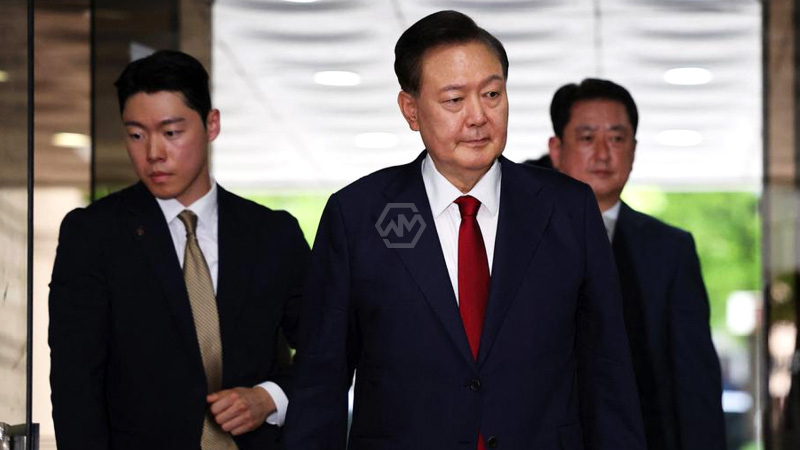- Former President Yoon Suk Yeol appears in court over December’s failed martial law decree.
- Charges include attempted rebellion, abuse of power, and falsifying state documents.
- The court will soon decide on his potential arrest following an investigation by a special prosecutor.
Former South Korean President Yoon Suk Yeol stood before the Seoul Central District Court on Wednesday, as a judge reviewed a request for his detention over five major criminal charges stemming from his failed attempt to impose martial law in December.
In addition to claims of document falsification and illegal military mobilization, prosecutors accuse Yoon of instructing aides to disseminate false narratives to international media and obstruct a lawful arrest attempt in January by deploying presidential security forces as a personal guard.
Fall from Power: Yoon Suk Yeol Confronts Arrest Warrant Over Martial Law Scheme
Yoon’s martial law declaration on December 3 was abruptly terminated within hours after lawmakers stormed past armed military personnel and convened in the National Assembly. They voted overwhelmingly to end the decree, which many described as an unconstitutional attempt to derail democracy. Just eleven days later, Yoon was impeached by the legislature, reflecting bipartisan outrage over what has been labeled a “civilian coup.”
The investigation led by special prosecutor Cho Eun-suk is broad in scope, targeting not only Yoon’s personal actions but also the roles played by former Prime Minister Han Duck-soo and Defense Minister Kim Yong-hyun, who allegedly signed the forged document. Cho’s team maintains Yoon poses an active risk to the integrity of the investigation, citing attempts to destroy digital evidence and block arrest operations.
Yoon’s legal counsel has denounced the prosecution’s strategy as politically charged and excessive, emphasizing the absence of concrete evidence tying Yoon directly to orders that disrupted constitutional law. According to his attorneys, Yoon’s martial law move was a protective measure against what he perceived as “anti-state elements” obstructing national governance.
In contrast, newly elected President Lee Jae Myung, who won a snap election in June, has vowed to strengthen checks on executive power. His administration approved legislation to authorize special probes into Yoon’s presidency, including potential misconduct involving Yoon’s wife and former aides. This aggressive pursuit of accountability marks a shift in political tone, emphasizing transparency and institutional resilience.
Yoon Suk Yeol’s return to court signals a pivotal moment in South Korea’s democratic evolution—where accountability confronts the specter of authoritarian overreach.
“The price of freedom is eternal vigilance.” – Thomas Jefferson.



